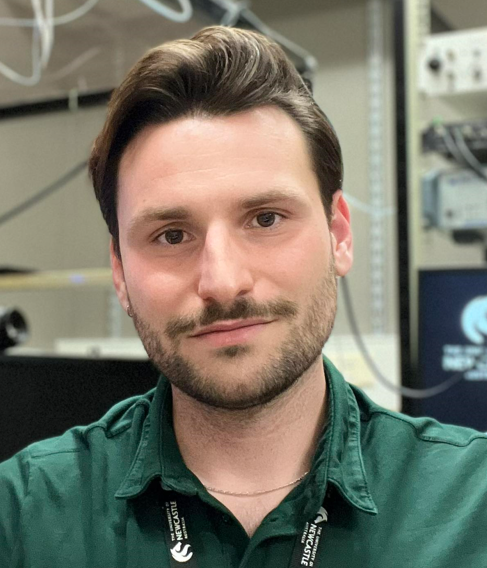
Biography
Dr David Lorincz is a Research Officer/Levi Wheeler Fellow at the Children’s Cancer Institute (CCIA) and a Conjoint Lecturer in Paediatrics and Child Health at the University of New South Wales (UNSW). He is a neuroscientist in the Brain Tumours Group where his research focuses on developing combination therapies for paediatric brainstem tumours, primarily Diffuse Intrinsic Pontine Glioma (DIPG).
Dr Lorincz completed his Bachelor’s and...view more
Dr David Lorincz is a Research Officer/Levi Wheeler Fellow at the Children’s Cancer Institute (CCIA) and a Conjoint Lecturer in Paediatrics and Child Health at the University of New South Wales (UNSW). He is a neuroscientist in the Brain Tumours Group where his research focuses on developing combination therapies for paediatric brainstem tumours, primarily Diffuse Intrinsic Pontine Glioma (DIPG).
Dr Lorincz completed his Bachelor’s and Master’s degrees in Neuroscience and Human Biology at the University of Veterinary Medicine and Eotvos Lorand University in Budapest, Hungary. Subsequently, he was awarded a competitive Vice Chancellor’s PhD scholarship at the University of Newcastle (UON) where he joined the Sensory Neurobiology Lab and started his PhD research in 2020. During his PhD training, he also contributed to anatomy teaching as a Casual Lecturer at the School of Biomedical Sciences and Pharmacy. He completed his PhD at UON in 2023, where his research project focused on the anatomy and physiology of the brainstem enigmatic Efferent Vestibular System, and its implications in novel therapy development for motion sickness and balance disorders. Dr Lorincz joined the Brain Tumours Group at CCI in 2024 as a postdoctoral researcher in the Levi’s Project. He is interested in brainstem tumour pathophysiology and preclinical drug therapy development for DIPG. As a Levi Wheeler Fellow, Dr Lorincz's research aims to develop novel combination therapies of the small-molecule brain penetrant drug ACT001. He is using a combination of in vitro molecular techniques, high-throughput combination drug screening, proteomics, RNA sequencing and in vivo patient-derived xenograft animal models (PDX) to develop more effective combination therapies for DIPG.
My Qualifications
University of Newcastle (UON), Newcastle, Australia
Doctor of Philosophy - PhD, Anatomy and Neuroscience (2020 – 2024)
Eotvos Lorand University (ELTE), Budapest, Hungary
Master of Science – MSc, Neuroscience and Human Biology (2016 - 2018)
University of Veterinary Medicine, Budapest, Hungary
Bachelor of Science - BSc, Biology/Zoology, (2013 - 2016)